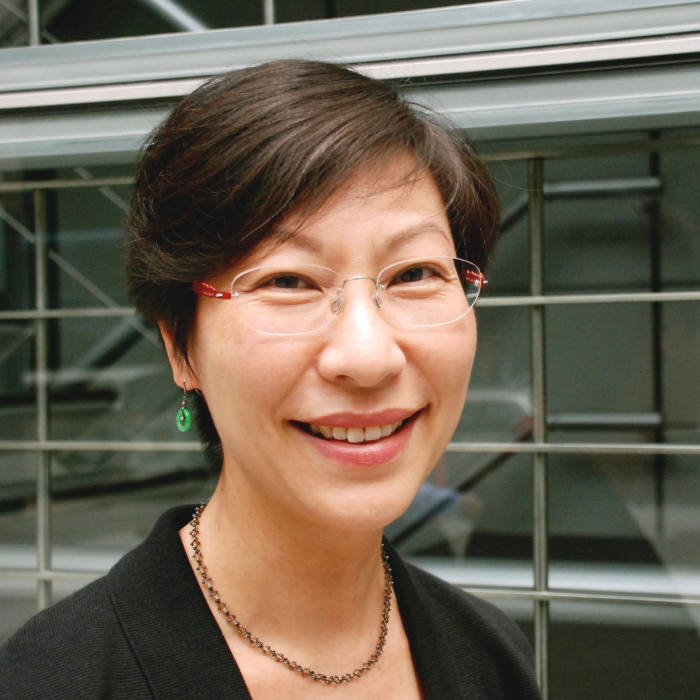
Third Egypt Business Solutions Summit kicks off under PM patronage
The Third Egypt Business Solutions Summit – under the theme “Creativity Is The Key To ...

Annie Chen is feeling optimistic. For some time now, Asian investors’ interest in sustainable ventures has “definitely accelerated”, says the Hong Kong-based advocate of environmental, social and governance (ESG) investing.
A decade ago, few of the backers that she was trying to persuade were enthusiastic. “Even the term ‘ESG’ only became used [here] a few years ago,” she says.
“Ten years ago, the banks had no idea what I was talking about.” As she has noted, openness in Asia to ESG investing has increased, alongside the growing influence of the new, younger generation. Both trends suggest that sustainable investing is well placed to grow further as opportunities arise to do things differently post-Covid-19. This could be “a generation-defining moment”, says Ko Siew Huey, a private investor based in Singapore.
“Rather than go back to business as usual, with its extractive and growth-at-all-cost approach, can we instead invest our collective resources into strengthening our human, social and natural capital? Maybe it’s time for sustainable investing to be the new normal.”
Whether via private investors, family offices, or family-owned and run businesses, attitudes are changing. The purpose of a business is increasingly likely to include commitments to environmental and societal concerns.
Ms Chen is the youngest daughter of Thomas Chen Tseng-Tao, former chairman of Hong Kong property developer Hang Lung Group. She chairs RS Group, a family office focused on sustainability. It recently spun off Sustainable Finance Initiative (SFi), which describes itself as a community of private investors who believe in “capital that matters”, and whose vision is “a world where sustainability is synonymous with finance”.
SFi says that interest in its work is fuelled by concerns that Hong Kong is falling behind in wider efforts to achieve social and environmental benefits.
A business that is focused on ESG is thinking about its impact on society, and how capital should be allocated accordingly, Ms Chen says.
“We are now starting to see banks and asset managers starting to push out ESG products. But the entire way we think about the economy needs to change. I would personally like to see more discussion in the public sphere about growth — can we redefine prosperity?”
In many established family offices, a younger generation trying to shift the investment focus to ESG can struggle to convince their elders to do things differently, without implying that youth knows better, or is smarter. An ESG focus is often presented as a change in circumstances.
“The previous generation has always done philanthropy — we just want to do it differently, by giving back actively,” says one impact investor, who declines to be named.
A third-generation wealth owner, Michael Au is among a younger cohort in Hong Kong that believes in an urgent need to address climate change. As managing director of District Capital, the investment arm of the family office established in 2017 with family money from property development, he set out to show it is possible to reconcile ESG values with financial profits.
“The previous generation was talking about surviving and thriving. My generation is saying we have built our businesses — what can we now do better, in every sense of the word,” he says.
Earlier this year District Capital invested in C16 Biosciences, a biotech start-up developing a synthetic alternative to palm oil, to address deforestation. It followed a $20m investment by Breakthrough Energy Ventures, a fund set up by Bill Gates to back innovative technologies to address climate change.
Interested in ventures that combine the innovation of fintech with sustainability, District Capital has just closed an investment into Turnkey Group, an Asia-based ESG data analytics company, in which it is lead investor in the round.
When Jacky Lam returned to Asia from University of Michigan business school, he started as a trainee in his father’s eyewear business in Hong Kong. Today, as managing director of the business, Okia Optical, he says: “It used to be a company that provided products. Now it is a company that provides an idea, not just a product.”
That idea is sustainable fashion — recycling water bottles to create biodegradable plastic for use in manufacturing Okia’s fashionable eyewear.
The initiative turns discarded plastic into a useful and attractive product, while also cutting costs. Meanwhile, his father YS Lam and his sister Dorothy have co-founded Dream Impact, a venture to bring together social start-ups, “socially-minded” businesses and investors looking to combine financial returns with social impact.
Jacky Lam says it took years of research and development work on processing the used plastic to meet the production and design standards required for fashionable creations. But he welcomes the chance to respond to a climate- and fashion-conscious younger generation. The initiative is “turning waste into opportunity”.
The Third Egypt Business Solutions Summit – under the theme “Creativity Is The Key To ...
Marisa Henderson, the Chief of the Creative Economy Program in UNCTAD, highlighted disparities in creative economy ...
Nearly three billion people face water scarcity. Over 90 percent of disasters are water-related, including ...


اترك تعليقا